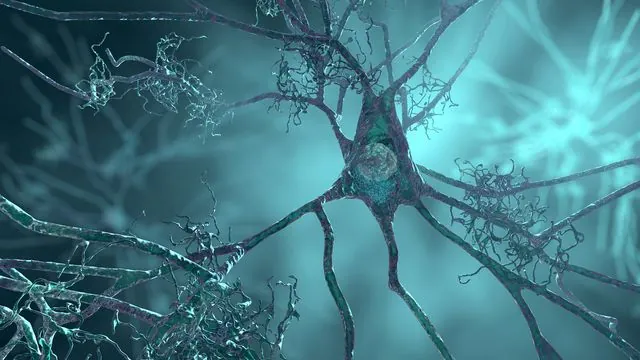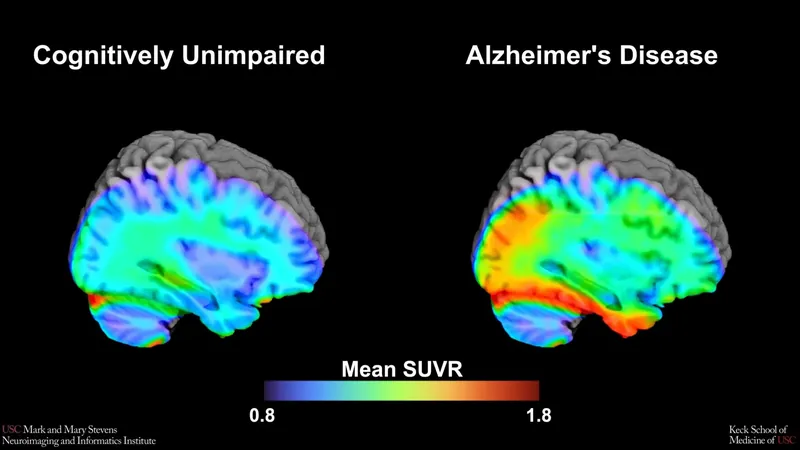
Breakthrough Discovery: Key Protein in Astrocytes Linked to Alzheimer’s Disease Progression!
2025-05-28
Author: Nur
Revolutionary Findings from University of Barcelona!
A groundbreaking study by researchers at the University of Barcelona’s Institute of Neurosciences (UBneuro) has unveiled critical molecular mechanisms behind cognitive decline in Alzheimer's disease—the most prevalent form of dementia. Published in the esteemed journal Alzheimer’s & Dementia, this research highlights the pivotal role of RTP801 protein in astrocytes, marking a significant advancement in our understanding of neurodegeneration.
The Unfolding Mystery of RTP801 and Astrocytes
Alzheimer’s disease is notorious for the buildup of β-amyloid plaques outside neurons and hyperphosphorylated tau protein masses within them. New insights reveal that RTP801, encoded by the DDIT4 gene within hippocampal neurons, plays an essential part in neuroinflammation and progression of the disease. This study outlines the previously unknown influence of RTP801 in astrocytes—brain cells traditionally seen as mere support.
Professor Cristina Malagelada, a leading researcher in this study, notes, "Astrocytes are now recognized as active participants in neurodegenerative processes, maintaining a balance of excitatory and inhibitory signals. RTP801, implicated in neuronal stress, has now been shown to critically affect astrocytic functions."
Silencing RTP801: A Game-Changer for Cognitive Health?
Employing cutting-edge gene therapy techniques, the research team investigated the consequences of silencing RTP801 in astrocytes of Alzheimer’s animal models. The results revealed a promising link between RTP801 levels and brain connectivity. Lowering RTP801 expression not only enhanced spatial memory but also improved the functionality of inhibitory circuits essential for cognitive tasks.
"In Alzheimer’s, the dysfunction of these circuits correlates with cognitive decline and emotional instability," explains Almudena Chicote, the study's lead author. "Reducing RTP801 levels contributed to normalizing the hyperconnectivity often seen in these models, leading to brain connectivity akin to that of healthy individuals."
Restoring Balance: The Key to Brain Function?
The research team made another crucial finding: GABA, a neurotransmitter vital for regulating brain activity, is diminished in Alzheimer’s models. Silencing RTP801 in astrocytes demonstrated the potential to partially restore this neurotransmitter, addressing deficits linked to the loss of parvalbumin-positive (PV+) interneurons in the hippocampus.
Chicote emphasizes, "Silencing RTP801 could reverse some neuronal damage and revive GABA synthesis, bringing hope for better cognitive function in Alzheimer’s patients." Moreover, the study suggests that RTP801’s toxicity might explain aberrant brain connectivity observed in models, reinforcing the link between RTP801 and critical GABA-producing neurons.
Looking Ahead: New Horizons in Alzheimer’s Treatment
With this study laying the groundwork for future explorations, the researchers aim to validate the silencing of RTP801 as a therapeutic target in combatting Alzheimer’s disease. This pivotal research not only deepens our understanding of neurodegenerative mechanisms but also opens avenues for innovative treatments to combat this devastating disease.


 Brasil (PT)
Brasil (PT)
 Canada (EN)
Canada (EN)
 Chile (ES)
Chile (ES)
 Česko (CS)
Česko (CS)
 대한민국 (KO)
대한민국 (KO)
 España (ES)
España (ES)
 France (FR)
France (FR)
 Hong Kong (EN)
Hong Kong (EN)
 Italia (IT)
Italia (IT)
 日本 (JA)
日本 (JA)
 Magyarország (HU)
Magyarország (HU)
 Norge (NO)
Norge (NO)
 Polska (PL)
Polska (PL)
 Schweiz (DE)
Schweiz (DE)
 Singapore (EN)
Singapore (EN)
 Sverige (SV)
Sverige (SV)
 Suomi (FI)
Suomi (FI)
 Türkiye (TR)
Türkiye (TR)
 الإمارات العربية المتحدة (AR)
الإمارات العربية المتحدة (AR)